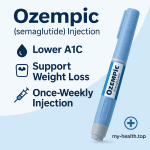Understanding Women’s Health Screenings
Health screenings play a critical role in early detection and prevention of diseases, especially for women. As we age, our bodies undergo various changes that require different approaches to health care. Regular screenings can help identify potential health issues before they become serious. But what exactly should women be screened for at different stages of life? Understanding the pathophysiology behind these screenings can empower women to take charge of their health.
Screening Recommendations by Age
In Your 20s: Building a Foundation
In your twenties, establishing a relationship with a healthcare provider is essential. This is the time for preventive care and education about your health. Key screenings include:
- Annual Wellness Visit: An opportunity to discuss your health history, lifestyle, and any concerns. This visit can help identify risk factors for conditions such as obesity or diabetes.
- Cervical Cancer Screening: Begin Pap smears at age 21, regardless of sexual history. This test should be done every three years until age 29. The Pap test detects precancerous changes in cervical cells, allowing for early intervention.
- STI Testing: Regular screening for sexually transmitted infections (STIs) is crucial, particularly if you have new or multiple partners. Early detection of STIs can prevent long-term complications such as infertility.
In Your 30s: Assessing Risks
As you enter your thirties, your risk for certain health issues may begin to shift. Important screenings include:
- Cervical Cancer Screening: Continue Pap tests every three years or switch to a Pap and HPV test every five years starting at age 30. HPV is a significant risk factor for cervical cancer.
- Breast Cancer Screening: Discuss with your doctor about starting clinical breast exams and the potential benefits of mammograms, especially if you have a family history. The mechanisms of breast cancer development often involve hormonal changes and genetic predispositions.
- Blood Pressure Check: Monitor your blood pressure regularly to prevent hypertension, which can lead to serious cardiovascular issues.
- Cholesterol Screening: Begin screening for high cholesterol levels, especially if you have risk factors like obesity or a family history of heart disease. High cholesterol can lead to atherosclerosis, increasing heart disease risk.
In Your 40s: Increased Vigilance
Your forties bring new health considerations. Key screenings include:
- Mammogram: Start annual mammograms at age 40, or earlier if you have a family history of breast cancer. Mammograms can detect tumors that are too small to feel.
- Cervical Cancer Screening: Continue with Pap and HPV tests as recommended. The risk of cervical cancer increases with age, making regular screening vital.
- Diabetes Screening: Begin screening for diabetes if you have risk factors, such as obesity or a sedentary lifestyle. Early detection can prevent complications such as neuropathy or cardiovascular disease.
- Thyroid Function Test: Consider testing for thyroid disorders, especially if you experience symptoms like fatigue or weight changes. Thyroid dysfunction can significantly impact metabolism and overall health.
In Your 50s: Focus on Prevention
During your fifties, the focus shifts to prevention and managing chronic conditions. Important screenings include:
- Mammogram: Continue annual mammograms, as the risk of breast cancer increases with age. Understanding the biology of breast tissue changes can help in recognizing the importance of these screenings.
- Bone Density Test: Start screening for osteoporosis at age 65, or earlier if you have risk factors. Osteoporosis can lead to fractures and significant morbidity.
- Colorectal Cancer Screening: Begin screening at age 45 with a colonoscopy or other tests as directed by your doctor. Early detection of colorectal cancer can significantly improve survival rates.
- Cardiovascular Health: Monitor heart health through regular cholesterol and blood pressure checks. Women often experience different symptoms of heart disease compared to men, making awareness crucial.
In Your 60s and Beyond: Comprehensive Care
As you age, comprehensive care becomes increasingly important. Essential screenings include:
- Mammogram: Continue annual screenings. Regular monitoring is vital as the risk of breast cancer continues to rise.
- Colorectal Cancer Screening: Continue regular screenings until age 75, based on your health status and previous results. The mechanisms of colorectal cancer involve genetic mutations and lifestyle factors.
- Bone Density Test: Regular assessments for osteoporosis are vital. Understanding bone health can help in developing preventive strategies.
- Vision and Hearing Tests: Regular screenings for vision and hearing changes are essential to maintain quality of life. Age-related changes can significantly impact daily activities.
- Depression Screening: Mental health is crucial; discuss any feelings of sadness or anxiety with your healthcare provider. Mental health issues can often co-occur with chronic physical conditions.
Myth vs. Fact
Myth: Only older women need regular health screenings.
Fact: Women of all ages should have regular screenings tailored to their age and health history. Early intervention is key to preventing diseases.
Myth: If I feel fine, I don’t need screenings.
Fact: Many health issues can be asymptomatic in their early stages; screenings can catch problems before symptoms appear. For example, hypertension and high cholesterol often present no symptoms.
Patient Vignette
Meet Sarah, a 32-year-old woman who recently moved to a new city. After finding a local healthcare provider, she scheduled her first annual wellness visit. During her appointment, she learned about the importance of regular screenings, including cervical cancer tests and STI screenings. Sarah felt empowered by the knowledge she gained and committed to making her health a priority. She also learned about the importance of self-advocacy, asking questions, and ensuring her health concerns were addressed.
Frequently Asked Questions
1. What is the most important screening for women?
While all screenings are important, cervical cancer and breast cancer screenings are often prioritized due to their impact on women’s health. The early detection of these cancers can significantly improve outcomes.
2. How often should women have a wellness exam?
Women should have an annual wellness exam to discuss health concerns and receive necessary screenings. This visit is crucial for maintaining a proactive approach to health.
3. At what age should women start getting mammograms?
Women should begin annual mammograms at age 40, or earlier based on family history. Discussing personal risk factors with your healthcare provider can help tailor the screening schedule.
4. Are there screenings for mental health?
Yes, mental health screenings are important, especially in older adults. Discuss any concerns with your healthcare provider. Mental health is integral to overall wellness.
5. How can I prepare for a health screening?
Prepare by gathering your medical history, listing any medications, and noting any symptoms or concerns you want to discuss. This preparation can help ensure a productive visit.
6. What should I do if I have a family history of certain diseases?
If you have a family history of diseases such as breast cancer or heart disease, it’s essential to discuss this with your healthcare provider. They may recommend earlier or more frequent screenings based on your risk factors. Family history can significantly influence your risk profile, and proactive measures can be taken to mitigate these risks.
7. Are there any lifestyle changes I can make to improve my health?
Absolutely! Regular exercise, a balanced diet rich in fruits and vegetables, maintaining a healthy weight, and avoiding tobacco use can significantly improve your overall health and reduce the risk of chronic diseases. Additionally, managing stress through mindfulness or relaxation techniques can enhance mental health.
Key Takeaways
- Regular health screenings are crucial for early detection and prevention of diseases in women.
- Screening recommendations change with age; be proactive about understanding your needs.
- Don’t wait for symptoms; many conditions can be asymptomatic in early stages.
- Establish a relationship with a healthcare provider to guide your screening journey.
- Empower yourself with knowledge about your health and advocate for necessary screenings.
References
- American College of Obstetricians and Gynecologists (ACOG). (2021). Recommendations for Preventive Services.
- Centers for Disease Control and Prevention (CDC). (2022). Women's Health: Preventive Services.
- U.S. Preventive Services Task Force (USPSTF). (2021). Screening for Cervical Cancer.
- National Institutes of Health (NIH). (2020). Osteoporosis and Women.
- World Health Organization (WHO). (2021). Women’s Health: A Global Perspective.
- UpToDate. (2023). Screening for Breast Cancer in Women.








Post a comment